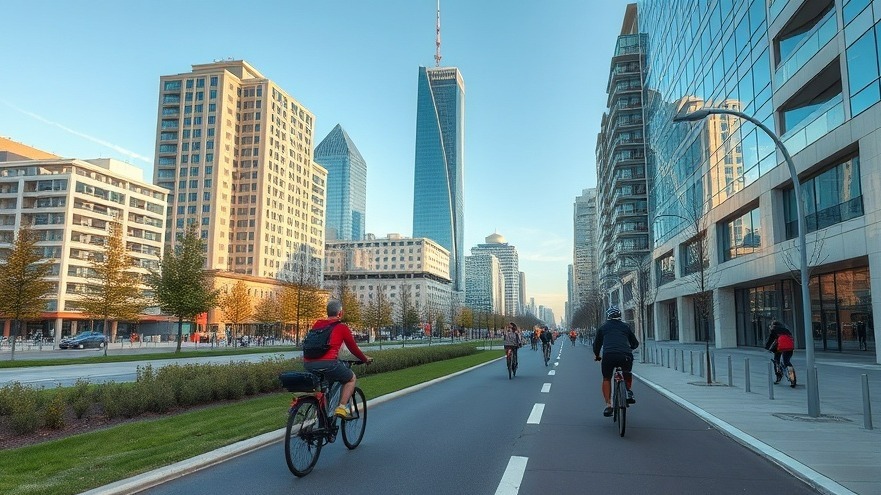
The Vision for a Bike-Friendly Future
Imagine a city where the hum of bicycle wheels replaces the roar of car engines, where wider streets and dedicated bike lanes not only serve as conduits for the environmentally conscious but also enhance the urban experience for its residents. Such a vision has come to life in the recent SketchUp Design Sprint Challenge, which invited participants to conceptualize bike-friendly urban environments. The winning design emphasizes not just transportation but a holistic approach to urban living, where wellness and productivity thrive.
Balancing City Life with Environmental Consciousness
As societies become increasingly aware of their environmental impact, the conversation about sustainable urban design grows ever more pressing. The bike-friendly city concept presented in the challenge illustrates how cities can reduce their carbon footprints while promoting healthier modes of transportation. With spacious streets designed for bicycles and pedestrians alike, urban planners are encouraged to reimagine infrastructure that aligns with eco-friendly principles.
A Haven for Digital Nomads
For digital nomads seeking productive remote working conditions, a bike-friendly city isn’t just about cycling; it signifies a lifestyle that champions work-life balance and accessibility. With wider streets, it becomes easier to integrate co-working spaces into the urban fabric. Having a smooth, bike-friendly commute could lead to less stress and more time for creativity and collaboration—essential elements for those in flexible work arrangements. Not only does this improve mental well-being, but it also fosters communities that thrive.
Social Connections in Urban Spaces
Beyond the practicalities of commuting, bike-friendly designs promote social interaction. As people cycle alongside each other, they are more likely to connect with their neighbors and build stronger community ties. This social aspect of urban planning supports mental health and creates an environment that’s conducive to productivity, aligning perfectly with the ethos of the digital nomad lifestyle. It’s about creating spaces where work meets community—a vital balance.
Future Predictions: The Rise of Mixed-Use Spaces
As cities evolve and adapt to new lifestyles, one can anticipate the rise of mixed-use spaces that blend residential, commercial, and recreational areas. This innovative design approach can be seen in the winning entries of the SketchUp challenge, which reflect a proactive stance towards future urban lifestyles. Citizens will have access to amenities within walking or cycling distance, promoting health and convenience while reducing reliance on personal vehicles.
Empowering Choices for Urban Residents
Understanding the dynamics of a bike-friendly city offers numerous benefits for both urban planners and residents. The choices that come with this type of environment can empower citizens to opt for healthier living solutions and reduce their dependency on cars. As remote work becomes the norm, individuals might find that commuting by bike not only aligns with their values but also enhances their overall productivity, making cities more adaptable to future challenges.
Actionable Insights for Embracing the Change
As digital nomads consider their ideal work environments, there's much to learn from the bike-friendly designs proposed in the challenge. When planning your workspace—whether at home or in co-working spaces—prioritizing accessibility, comfort, and interaction with the environment can lead to greater fulfillment in your work. Consider how integrating bicycle commuting into your routine could invigorate your productivity and mental well-being.
In conclusion, the bike-friendly future envisioned in the SketchUp Design Sprint Challenge not only presents exciting possibilities for urban dwellers but also lays the groundwork for a sustainable, connected community. To those looking to enhance their remote work experience, exploring these innovative designs could usher in a new era of productivity and wellness.
 Add Row
Add Row  Add
Add 




Write A Comment